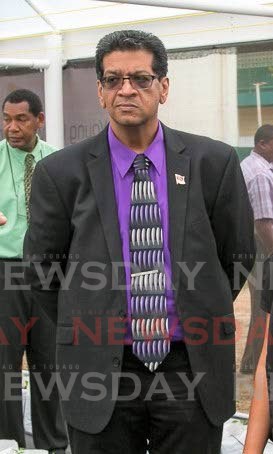The real struggles of Trinidad and Tobago economy
Written by Newsday on January 10, 2025

RUSHTON PARAY
THE RECENT IDB report claiming significant productivity growth in TT over the last four years seems disconnected from the harsh economic and social realities experienced by citizens and businesses. While statistical measures may suggest improvement, they fail to capture the real struggles caused by years of mismanagement and policy failures under the Keith Rowley administration.
For nearly a decade, the Rowley-led government has presided over an economic environment marked by stagnation, inefficiency, and poor governance. A key contributor to this decline has been the administration’s failure to address pressing issues in the labour force. Unemployment remains high, while many workers face underemployment and precarious job conditions.
The widespread emigration of skilled labour, particularly from critical sectors like healthcare, technology, and energy, underscores a fundamental lack of confidence in the country’s future. This brain drain has gutted the nation of its best and brightest, leaving industries under-resourced and underproductive.
These challenges have been exacerbated by the inability of the Minister of Finance, supported by the Cabinet, to implement sound fiscal and economic policies. Instead, professionals in key sectors were marginalised as the minister pursued one failed decision after another.
The result has been an economy trapped in a cycle of dependency on dwindling energy revenues, with no clear diversification strategy. The ongoing decline in the energy sector, contracting by 5.4 per cent in recent years, is a glaring indictment of this administration’s lack of foresight.
The government’s failure to provide a stable foreign exchange system has left businesses struggling to access US dollars for critical imports, disrupting operations and stifling growth. Small- and medium-sized enterprises (SMEs), which form the backbone of the economy, have borne the brunt of these challenges.
Compounding this are bureaucratic hurdles, including inefficient customs processes, burdensome regulatory requirements, and high compliance costs. These issues have not only deterred local entrepreneurship, but also driven away foreign investors, leaving the economy to languish in mediocrity.
While the IDB report touts improvements in innovation and technology adoption, the ground reality tells a starkly different story. Most businesses lack the resources or infrastructure to adopt modern technologies that could enhance productivity.
The reported rise in patent filings from 7.1 per cent in 2014 to 11.4 per cent in 2020 is hardly evidence of broad-based innovation. Filing patents does not equate to significant technological progress, particularly when the broader economy suffers from stagnation in key sectors like manufacturing and agriculture.
The education system is another glaring failure of the Rowley administration. Despite relatively high levels of formal education, graduates often lack the practical skills required by industries. This skills mismatch has left employers frustrated, forced to retrain new hires at considerable expense.
Instead of reforming the education system to align with economic needs, this administration has allowed outdated curriculums and inadequate policies to persist, further deepening the gap between education and industry.
Rising crime, another hallmark of this government’s tenure, has created an environment of insecurity that directly undermines productivity. Businesses are forced to allocate significant resources to security, while workers grapple with the psychological and physical toll of unsafe conditions. Foreign and local investors alike are deterred by the escalating crime rates, which have eroded confidence in the country’s potential for economic growth.
Infrastructure deficiencies also highlight the administration’s neglect. Workers face long commutes due to inadequate public transportation and poorly maintained roads, reducing their capacity for productive output. Frequent disruptions in utilities like water supply create additional challenges for businesses, particularly SMEs, which lack the resources to mitigate these issues.
The IDB’s reported productivity gains likely stem from isolated improvements in capital-intensive industries, such as manufacturing, where automation has boosted output per worker. However, these gains are not reflective of the broader economy, where labour-intensive sectors continue to struggle. This uneven distribution of productivity benefits has left many workers and industries behind, further exacerbating inequality.
After nearly ten years under Rowley’s leadership, it is evident that his administration has failed to deliver meaningful economic reform. Instead, it has allowed the Finance Minister to marginalise professionals and implement poorly conceived policies that have weakened key sectors. The promises of diversification, innovation, and structural reform have remained unfulfilled, leaving TT ill-prepared for the challenges of the global economy.
The Rowley administration’s mismanagement has created an economic environment where statistical gains in productivity mask the underlying decay. Unemployment, foreign exchange shortages, crime, and poor infrastructure have all combined to cripple the economy. Until these systemic issues are addressed, any reported improvements will remain hollow, failing to reflect the lived experiences of workers and businesses.
The people of TT deserve better than the current state of affairs. It is time for a leadership that prioritises genuine reform, leverages the expertise of professionals, and implements policies that address the real challenges facing the nation. Only then can we begin to rebuild confidence, restore economic stability, and create a future where productivity growth is not just a statistic, but a reality for all.
Rushton Paray, Mayaro MP, is the opposition spokesperson on trade and industry
The post The real struggles of Trinidad and Tobago economy appeared first on Trinidad and Tobago Newsday.




